After an intense year of collaboration, peer-to-peer learning, and policy innovation and a successful, insightful, and engaging Regional follow-up phase in Dar es Salaam, Tanzania, in October 2024, the iPRIS 2024A cohort officially joined the iPRIS alumni community. The cohort’s wrap-up plenary brought together national regulatory authorities from The Gambia (PURA), South Africa (ICASA), Lesotho (LCA), Uganda (UCC), Mauritius (ICTA), Tanzania (TCRA), regional bodies such as CRASA, the SPIDER team, PTS representatives, and a network of peers and experts.
The plenary session opened with acknowledgements from the facilitator, Kerstin Borglin, SPIDER, of the members present, including Katrina Schyberg, the project lead of iPRIS at PTS, Lars-Göran Hansson and Gustav Lenninger from PTS, and the other SPIDER associates in Stockholm: Caroline Wamala, Ulf Larsson, Alexandra Högberg, Katja Sarajeva, and Edna Soomre. The session was reflective and committed to showcasing achievements and the importance of continuous peer learning, all while highlighting the programme's core themes.
Showcasing Change Initiatives
Participants from respective countries presented the outcomes of its Change Initiatives (CI), reflecting on lessons learnt and shared plans for future implementations.
In the earlier session, South Africa’s ICASA shared its experience in developing Dynamic Spectrum Access (DSA) regulations. The project accomplished technical assessments and legal evaluation with ongoing public hearings. A few challenges were encountered, including resource constraints and timeline overruns; however, effective stakeholder engagement and diverse regional perspectives helped mitigate risk.
Lesotho’s LCA followed and shared the LCA’s cybersecurity regulatory instructions, which were approved in March 2025. They also highlighted the five-year alignment of the biannual reporting plan with stakeholders. Uganda’s UCC presented a revised National Numbering plan, and authorisation frameworks were in the final approval stages. The project focused on internal workflows through restructuring and leveraging data-driven management practices.
Mauritius’s ICTA discussed their public dashboards in development and also presented its updated Quality of Service (QoS) evaluation framework, which integrates crowdsourced user data and engages operators. The Gambia’s PURA introduced new consumer complaint-handling guidelines with refined KPIs. And Tanzania’s TCRA introduced its draft guidelines for satellite-terrestrial spectrum sharing. Established with stakeholder input, their project fosters partnerships between Mobile Network Operators (MNOs) and satellite operators.
Peer and Expert Reflections
The representatives from PTS, SPIDER, and CRASA applauded the cohort’s project presentations for their comprehensiveness, intent, and regional relevance. Emphasis on the importance of real-time monitoring and stakeholder engagements. Participants were also encouraged to view the conclusion of their CIs as the beginning of a continuous institutional development process. The participant countries highlighted the advantage of peer networks for sustaining change.
Looking Ahead
The 2024A cohort demonstrated that impactful regulation is possible when local expertise is combined with structured peer learning. The plenary session concluded with a unified understanding that real change requires sustained effort, and iPRIS provides a platform to facilitate evidence-based digital regulation across Africa.
Here are some video highlights from the cohort:
iPRIS is coordinated and implemented by SPIDER in strategic and technical partnership with the Swedish Post and Telecom Authority (PTS) and the Luxembourg Regulatory Institute (ILR).
iPRIS is funded by the European Union, Sweden, and Luxembourg as part of the Team Europe Initiative “D4D for Digital Economy and Society in Sub-Saharan Africa” (Code: 001).
In Juba, South Sudan, the 1st Advisory Council and 30th General Assemblies under EACO were launched, with over 250 regional stakeholders convened under the theme, "Shaping the Future of the East African Region through Digital Transformation." The high-level event on 9-13 June 2025 was hosted by the National Communication Authority (NCA).
This landmark congregating marks a significant milestone for EACO, as it signals the inauguration of the Advisory Council meeting-a forum consisting of Members and Partners that meet once every two years to adopt and coordinate recommendations from the different Assemblies. Together with the Advisory Council, the four annual Assemblies of EACO-i.e., Regulators, Postal Operators, Telecommunications Operators, and Broadcasting Operators-have also convened in Juba for discussions concerning the regional ICT landscape.
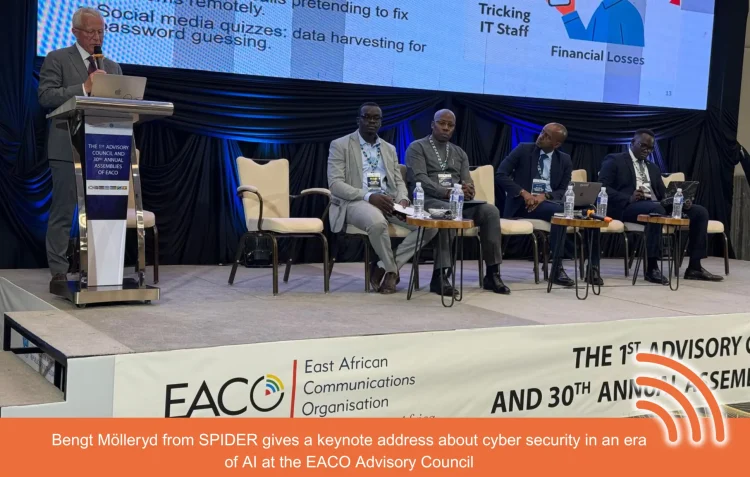
Digital transformation and inclusive growth in focus
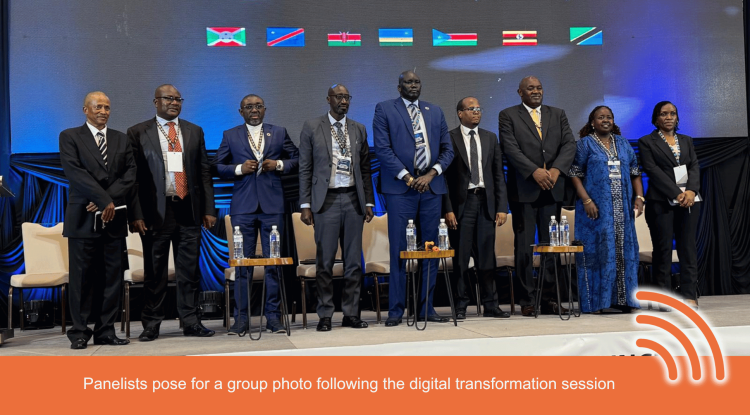
Day 1 focused on digital transformation as a critical dimension towards unlocking East African socio-economic development potential. Loads of thematic sessions were debated, including the following topics:
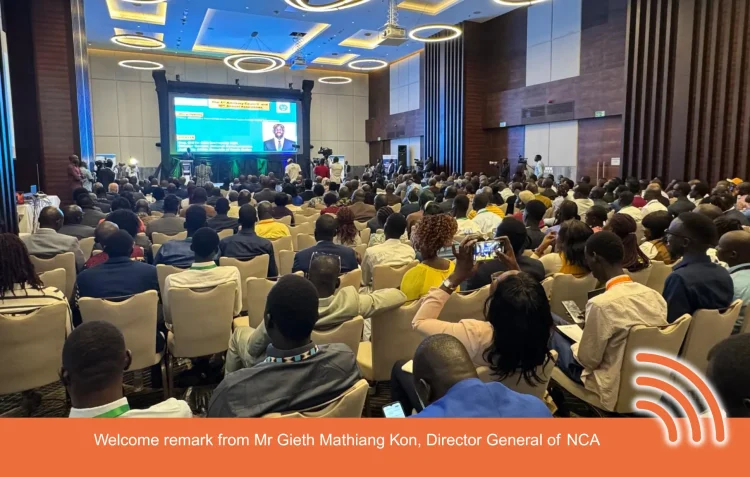
South Sudan hosting the Assemblies enhances NCA's regional leadership in telecommunications matters and projects to establish a digital hub.
"When we deliberate over the coming days, let us remain aware that the policies, recommendations, and standards we adopt here will ultimately touch many lives," stated Mr Gieth Mathiang Kon, Director General of NCA, during the opening day.
Regional leaders join forces to frame ICT policy
Day Two was marked by the official inauguration of the General Assemblies, drawing together regulatory and operational stakeholders from across East Africa. The arrival of Hon. Dr. Chris Baryomunsi, Minister of ICT and National Guidance from Uganda was warmly welcomed by top officials from the host country. The participation of such senior policymakers surely demonstrates a shared commitment to the region harmonising its ICT policy and regulatory framework with regional priorities and the African Union’s digital transformation agenda.
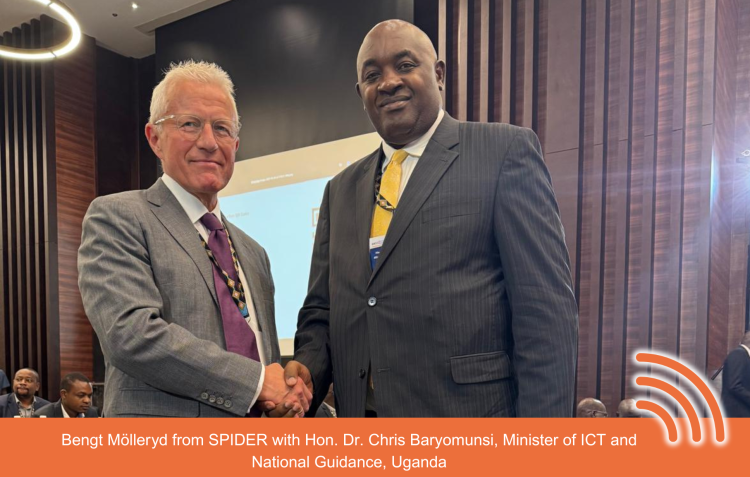
Marking a new chapter in regional ICT leadership
Reflecting the successful conclusion of the 1st Advisory Council meetings, the National Communication Authority announced that the 1st Advisory Council meetings had come to a close after being held from 11 to 13 June 2025 in Juba.
The final day was characterised by a comprehensive report from the outgoing Chair of EACO, Dr. Samuel Muhizi of Burundi, offering key reflections on the organisation's progress and its strategic priorities. However, a significant moment in the proceedings saw the official handover of the EACO chairmanship from Dr. Muhizi to Mr. Gieth Kon Mathiang, Director-General of the NCA, South Sudan.
In their final moments, the meetings adopted a Final Communiqué that encapsulated crucial resolutions and undertakings from member states aimed at enhancing collaboration and expediting digital transformation across East Africa.
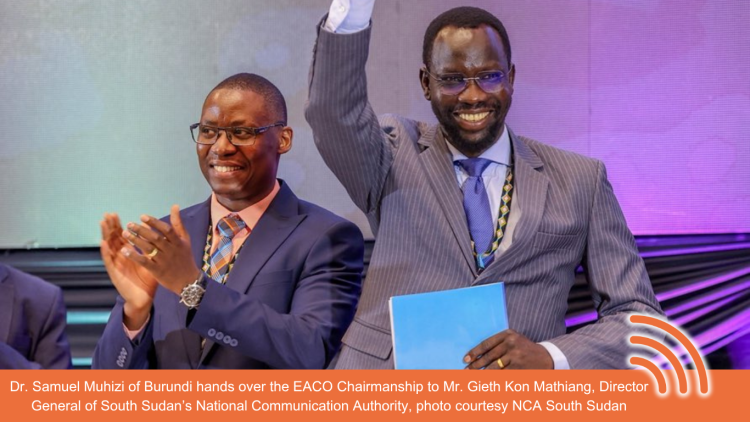
The interface for collaboration and regional integration
EACO remains firmly positioned in coordinating the regional space for inclusive and sustainable growth through digital transformation. These instruments- the Advisory Council and General Assembly- pave the way for peer learning, policy alignment, and institutional collaboration enhancement among the telecommunications sector of East Africa.
As a participant in iPRIS, EACO plays a pivotal role in assisting national national regulatory authorities (NRAs) as they strive to implement their change initiatives in their respective countries.
For more updates from the EACO 1st Advisory Council and 30th General Assemblies, follow the official proceedings here
For more information on the role of Regional Regulatory Organisations (RROs) like EACO in iPRIS, click here
iPRIS is coordinated and implemented by SPIDER in strategic and technical partnership with the Swedish Post and Telecom Authority (PTS) and the Luxembourg Regulatory Institute (ILR).
iPRIS is funded by the European Union, Sweden, and Luxembourg as part of the Team Europe Initiative “D4D for Digital Economy and Society in Sub-Saharan Africa” (Code: 001).
The National Communications Authority (NCA) of Ghana hosted a high-level delegation from the Independent Communications Authority of South Africa (ICASA) from 28 to 30 May 2025 in Accra. This is a strategic exchange that showcases the building blocks behind regional collaboration among National Regulatory Authorities (NRAs) and the shared commitment to universal access on the continent.
The visit, with a focal point on Ghana's implementation of universal access concepts, further reinforces a strong bilateral relationship between the country and South Africa. ICASA's visit to Ghana was aimed at learning from the country's holistic, multi-stakeholder approach to developing broadband infrastructure in rural and underserved communities through the NCA.
Rev. Ing. Edmund Y. Fianko, Acting Director General of NCA, reaffirmed that West-South cooperation remains of immense value in innovative regulation. Additionally, he stated that Ghana's success factors reside in sustainable financing mechanisms and inter-agency collaboration. The Ghana Investment Fund for Electronic Communications (GIFEC) is one of the critical pillars of Ghana's strategy and is funded through a 1% contribution from the revenues of licensed operators. This model has facilitated the rollout of 2G and 3G mobile infrastructure services in underserved areas, thereby promoting digital inclusion and greater access to voice and data services.
According to ICASA Board Member Councillor Cathrine Mushi, the visit was crucial for South Africa's Vision 2030, which aims for universal access to broadband. She acknowledged that South Africa faces structural challenges—legal and regulatory fragmentation being the primary concern—and expressed interest in Ghana's enabling frameworks and implementation options.
The other delegate at the visit was Mr Eric Nkopodi, Senior Manager of Engineering and Technology at ICASA, who emphasised that South Africa continues to focus on refining deployment frameworks, rights-of-way, dispute resolution, and rural infrastructure assessments. Coordinated institutional efforts being undertaken in Ghana provide practical insights to South Africa on its ongoing regulatory reforms.
During the three-day visit, the ICASA delegation met with key stakeholders, including GIFEC, American Tower Company, West Africa Cable System (WACS), and local government representatives, who provided a well-rounded view of the technical and policy environment underpinning Ghana's progress towards digital inclusion.
Not only does this benchmarking visit lend weight to the ongoing need for peer learning, but it also demonstrates how universal access can be accelerated through inter-agency coordination, sustainable funding, and regional knowledge exchange. This serves as a reminder that Africa-led solutions remain pivotal in setting the technological course for the continent.
The Europe Phase of the fifth iPRIS cohort (2025B) officially concluded in Stockholm on 21 May 2025, marking a critical milestone in the iPRIS peer-learning journey. Over a two-and-a-half-week period, regulatory ICT experts from six African National Regulatory Authorities (NRAs)—Eswatini (ESCCOM), Sierra Leone (NatCA), Nigeria (NCC), Tanzania (TCRA), Uganda (UCC), and Zambia (ZICTA)—collaborated alongside representatives from Regional Regulatory Organisations - RROs (WATRA | L'ARTAO, EACO, and CRASA) and their European counterparts.
The cohort underwent rigorous peer learning aimed at reinforcing regulatory frameworks, supporting inclusive digital governance, and correlating national ICT strategies with international standards while preserving in-country relevance.
Week 1 highlights: Transforming policy through insight and peer learning
The opening week of the programme laid the ground by way of strategic dialogue and institutional exchange. NRAs presented their Change Initiative. The Change Initiatives are conceived as vehicles for system-level change to bridge the digital divide in Sub-Saharan Africa.
The discussions during the first week also underscored Sweden’s regulatory shift to broadband and mobile termination, aligning with the EU’s broader legislative frameworks. The rise of digital services like WhatsApp continues to disrupt traditional telecom markets, as discussed by Fred Capper from the Swedish Post and Telecom Authority (PTS).
Katarina Schyberg (PTS) moderated day 2 sessions with an introduction to the iPRIS Learning Management System by Petra Rindby from SPIDER. The cohort then explored the Swedish regulatory context in depth through:
Our 3rd day kicked off with Andreas Wigren from PTS unpacking Sweden’s broadband strategy—highlighting how a market-driven approach, supported by strategic public investment, has shaped nationwide connectivity. Jens Ingman followed with insights into Sweden’s broadband mapping project, which has collected geospatial data annually since 2007 to support evidence-based policy.
In the final session, spectrum management took centre stage. Amela Hatibovic Sehic, Gustav Lenninger, and Fredrik Johansson of PTS shared Sweden’s approach to frequency planning, auctions, and international coordination—emphasising societal value over revenue.
On Day 4, AnnaLena Sandberg and Lisa Ljungqvist led sessions on end-user protection and digital inclusion through the lens of the Swedish Electronic Communications Act. This was followed by detailed discussions on numbering and addressing by Claes Hultholm and Jesper Simons.
Day 5 began with a focus on secure communications and cybersecurity, led by Per-Erik Vitasp, Gustav Söderlind, and Joakim Aspengren. They outlined Sweden’s regulatory requirements around availability, integrity, confidentiality, and privacy in telecoms.
In session two, Peter Thörnqvist guided a discussion on future-facing regulatory challenges. The day closed with Part 1 of a Project Management session by Malena Liedholm Ndounou from SPIDER, before the group headed out to explore Stockholm on the iconic Ocean Bus.
Week 2 highlights: Building collective capacity for inclusive connectivity
In the second week, regional and cross-continental cooperation further intensified through ideation circles, peer-to-peer presentations, and immersive site visits, including engagements with Ericsson and STOKAB, thereby providing the participants with hands-on insights into telecom infrastructure and data-driven policy design.
Day 1 started with thought-provoking discussions moderated by Katarina Schyberg from PTS. Astrid Olofsson and Björn Backgård led the first session on competition regulation in the telecommunication market, highlighting the importance of economic regulation to prevent monopolies and promote innovation. The session also provided insight into the four-step methodology for regulated markets and the three-criteria test that assesses barriers to entry, market trends and competition law sufficiency.
The second part of the day was held at SPIDER HQ in Stockholm University, and the first session, "Beyond Universal Access", was led by Caroline Wamala Larsson and Malena Liedholm-Ndounou from SPIDER, which challenged them to reimagine access as more than just connectivity. The role of diversity, equity and inclusion in achieving inclusive connectivity was also highlighted.
The other "Beyond Universal Access" sessions discussed challenges in Sub-Saharan Africa's mobile access, highlighting a 61% usage gap and emphasising the need for gender-responsive policies and digital literacy programs to address these gaps.
Day 2 sessions were peer-learning circles where African and European counterparts hold discussions together. The perspectives from the experts and team-based ideation drove dynamic participation, proving that when leaders learn together, systems change simultaneously. WATRA | L'ARTAO, CRASA, and EACO, also gave an update, reinforcing the critical role of regional structure in shaping Africa's digital culture.
Day 3 began with a full day of Industry learning experience at Ericsson, exposing participants to advanced telecom technology and real-world infrastructure, detailing insights into emerging digital infrastructure forms.
Day 4 was focused on MEAL (Monitoring, Evaluation, Accountability, and Learning), with Katja Sarajeva from SPIDER underscoring the importance of evaluation frameworks in digital policy interventions. Thereafter, the final modules of Project Management took place, and Kerstin Borglin and Malena Liedholm Ndounou guided participants in drawing up implementation plans. The day ended with a networking cruise around the Stockholm archipelago, allowing participants to reset after the intensive sessions and interact with peers in the sector.
The rest of the day today was dedicated to part two of "Beyond Universal Access" with Caroline Wamala Larsson and Malena Liedholm Ndounou from SPIDER and covered inclusive access strategies beyond just connectivity, with a focus on gender-responsive policy and digital literacy initiatives. The day ended with a study visit to Stokab, where the participants acquired hands-on exposure to Stockholm’s public fiber infrastructure.
Week 3 highlights: From vision to action
The closing week of this convening centered around strategic project planning and readiness for implementation. Key highlights from Day 1 and 2 included:
The cohort ended with each team discussing their Change Initiative project plans in an extensive and highly insightful 'Way Forward' session, setting the stage for measurable transformation leading into the Africa regional phase later this year. The outputs from this phase now feed into the next phase of the iPRIS cycle: the Africa Regional Phase (6-9 October in Botswana), where the peer learning continues in contextualised form and Change Initiatives edge closer to operational implementation.
Watch the video highlights from Sweden below
Here are some photo highlights from Sweden
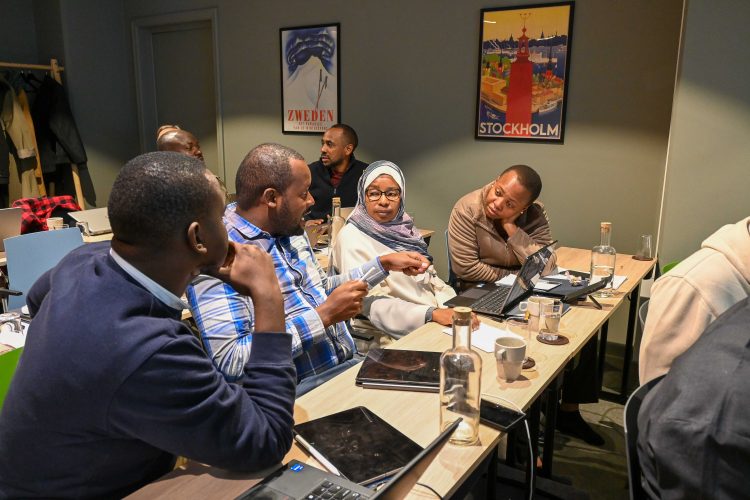
Peer-to-peer discussions during the round among African and European counterparts
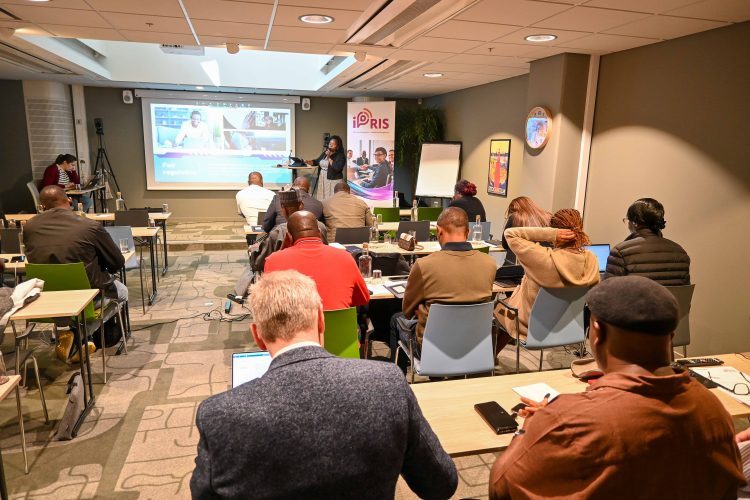
iPRIS participants follow discussions from peer experts during the round
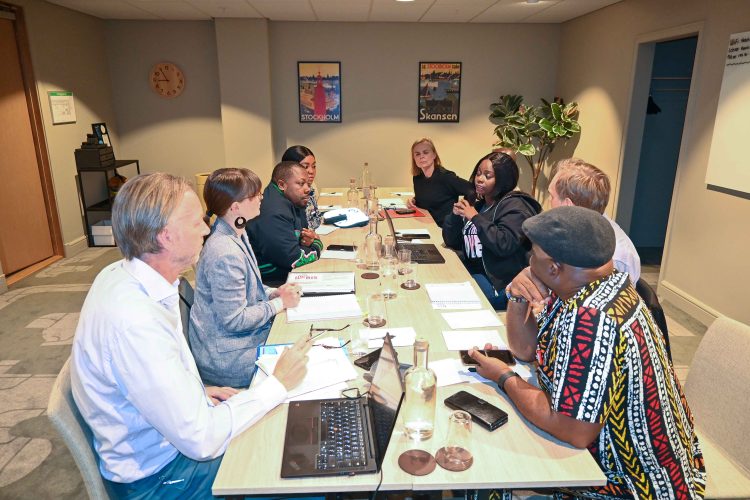
Peer-to-peer discussions during the round among African and European counterparts
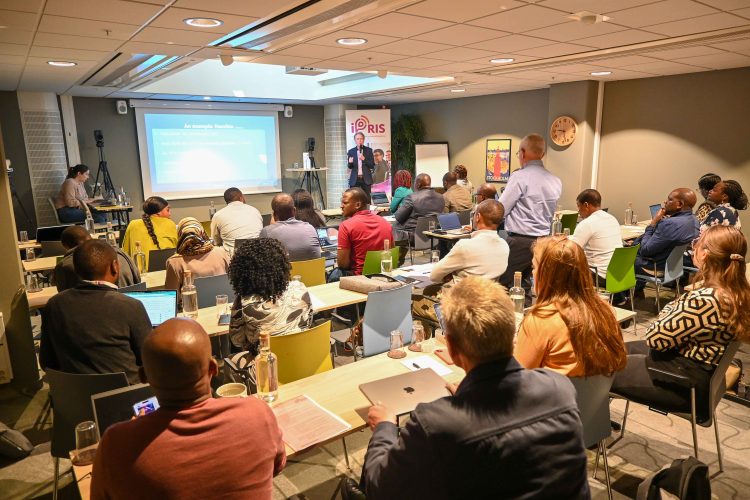
iPRIS participants follow discussions from peer experts during the round
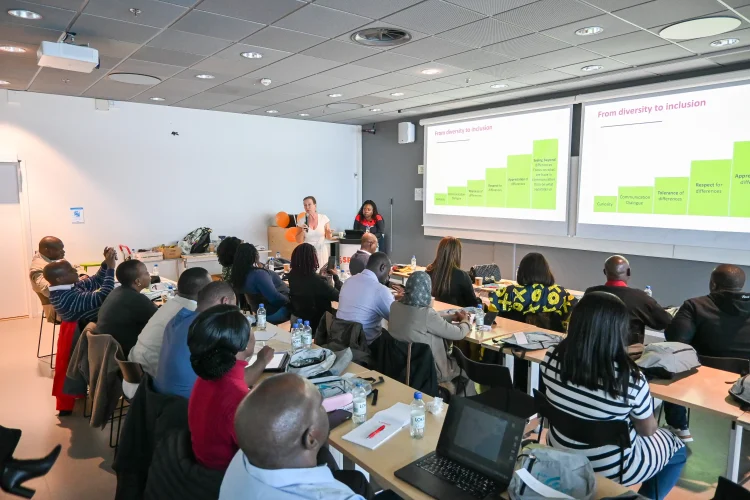
"Beyond Universal Access" presentation with Caroline Wamala Larsson and Malena Liedholm Ndounou from SPIDER
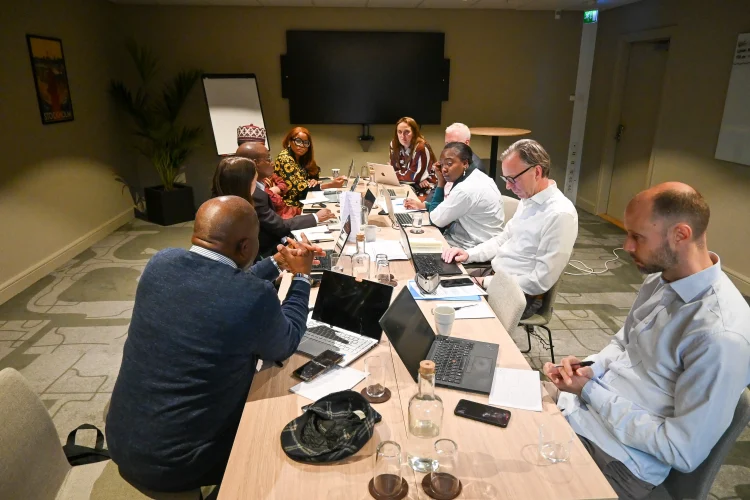
Peer-to-peer discussions during the round among African and European counterparts
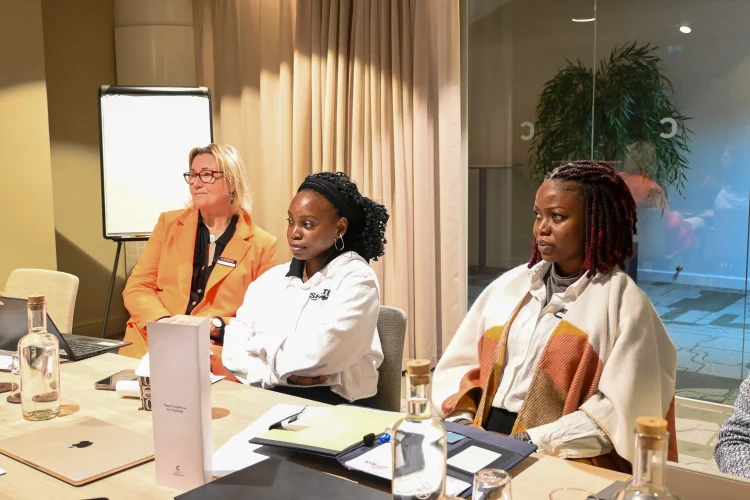
Peer-to-peer discussions during the round among African and European counterparts
iPRIS is coordinated and implemented by SPIDER in strategic and technical partnership with the Swedish Post and Telecom Authority (PTS) and the Luxembourg Regulatory Institute (ILR).
iPRIS is funded by the European Union, Sweden, and Luxembourg as part of the Team Europe Initiative “D4D for Digital Economy and Society in Sub-Saharan Africa” (Code: 001).
The Communications Authority of Kenya (CA) and SPIDER have extended their strategic collaboration in the iPRIS Project, reaffirming a mutual commitment toward inclusive and sustainable digital development in Africa. The latest engagement, hosted by CA on May 7th, aimed to enhance cooperation in strengthening regulatory capacity, promoting policy innovation, and fostering regional alignment. From CA, SPIDER was welcomed by the Director General, Mr David Mugonyi, Patricia Kerretts - Kemei, Mr Fred Onchoka (from the 2023A cohort), and Mr Dominic Ooko (from the 2024C cohort).
Collaboration remains a foundation of the iPRIS project, which aims to strengthen digitalisation via African-led and context-centred solutions. Since the first ITP programme (2016–2022), CA has remained a competent partner, leading in advancing regulatory best practices with technical expertise and a sincere commitment to gender-inclusive issues. The first iPRIS cohort, 2023A, featured CA and they are now alumnus, having completed their cycle in Nov 2024. The current CA participants are in the fourth iPRIS cohort, 2024C, and they are soon to complete their cycle later this year.
Read more about what the 2024C cohort has been up to here
Among the key discussion points during this engagement were:
- The need to frame national regulatory instruments in alignment with prevailing trends in regional and global digital transformation;
- The promotion of local ownership, rooted in national development strategies; and
- The use of data and evidence to make informed choices on policies and universal service activities.
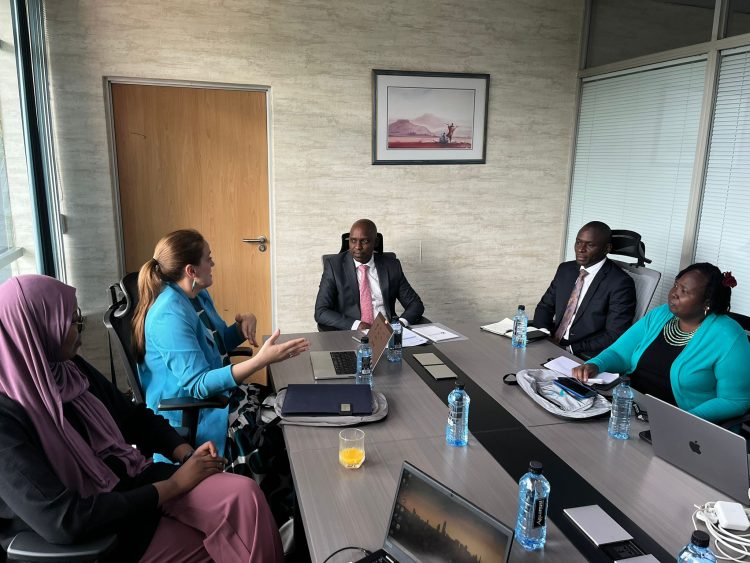
SPIDER and CA discuss matters of digital advancement
Strategic Alignment Leads to Tangible Results
CA mentioned the implementation of fibre deployment guidelines and works having been done on an access gap study, the outcome of which will ensure that universal service funding and infrastructure planning are more effective. Such outcomes are what iPRIS participants look forward to.
SPIDER, as coordinator and implementing partner of iPRIS, pointed to the necessity of institutional alignment and long-term capacity building. According to SPIDER, "the success of iPRIS depends on local leadership and embedding the project's objectives into national strategic priorities."
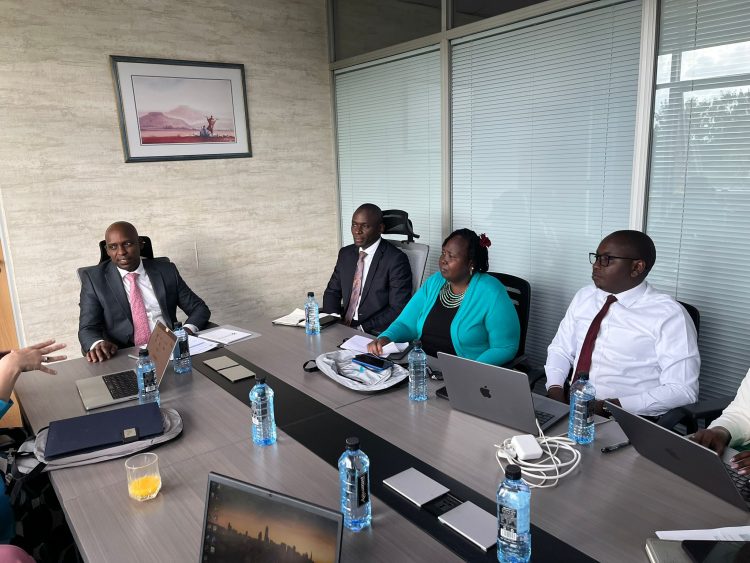
From left: The Director General of CA, Mr David Mugonyi joined by Mr Dominic Ooko, Patricia Kerretts - Kemei, and Mr Fred Onchoka during discussions with SPIDER
A Platform for Leadership in Digital Policy
The CA-SPIDER partnership continues to assist African regulators in adapting to technological change and in shaping it. In this ever-changing environment for digital policies, institutions must be agile, well-informed, and collaborative. iPRIS thus serves as a key institutional-building platform.
As the future iterations of iPRIS unfold, CA Kenya remains a critical stakeholder, securing Kenya's leadership in regional regulatory excellence and the advancement of inclusive digital development.
iPRIS is coordinated and implemented by SPIDER in strategic and technical partnership with the Swedish Post and Telecom Authority (PTS) and the Luxembourg Regulatory Institute (ILR).
iPRIS is funded by the European Union, Sweden, and Luxembourg as part of the Team Europe Initiative “D4D for Digital Economy and Society in Sub-Saharan Africa” (Code: 001).
To enhance regulatory alignment and knowledge sharing, the Nigerian Communications Commission (NCC) and the National Communications Authority of Ghana (NCA) held a high-level bilateral meeting in Accra on 8 May 2025. It was part of a two-day benchmarking mission by the delegation from the NCC, which was undertaken to increase regulatory alignment and jointly address sectoral challenges. The session was useful in allowing the regulators to deliberate on issues that were of concern to them, such as Quality of Service (QoS) monitoring, consumer protection, telecom infrastructure security, and cybersecurity resilience. In addition, they considered the practical aspects of ECOWAS Free Roaming, cross-border oversight of multinational operators, and capacity building for national regulators.
During the visit, a reconnaissance was carried out by the NCC delegation, under the leadership of Executive Vice Chairman Dr Aminu Maida, into the regulatory infrastructure of NCA. This included a visit to the Communications Monitoring Centre (CMC), which supervises network performances almost in real-time throughout the country, and the Common Platform, a common regulatory tool used to monitor financial performance by licensed operators.NCA also briefed the delegation on its advancement towards implementing regional roaming agreements with Côte d’Ivoire, Togo, and Benin, with The Gambia in the trial stage. NCA recognised Nigeria as a strategic partner because of the huge volume of traffic and trade flows between the two countries.
Thereafter, NCC presented some of its accomplishments, such as implementing the NIN-SIM linkage policy, operationalising a national telecoms incident reporting platform, and developing frameworks for measuring consumer satisfaction and operator compliance. The Commission also disclosed the designation of telecom infrastructure as Critical National Information Infrastructure by a Presidential Order and the implementation of the tariff simplification guidelines.
The visit provided an opportunity to reiterate mutual commitment to a structured, evolving engagement. Such an initiative between the two indicates the increased momentum towards integrated, data-centric, and citizen-centric regulation within the ECOWAS region. Both commissions reiterated enhanced cooperation among themselves in institutional linkages, harmonised approaches to regulation, and the buildup of a resilient digital ecosystem across West Africa.
As the Ghana National Communications Authority (NCA) looked forward to the 2025 World Consumer Rights Day, the telecom regulator partnered with the Radiation Protection Institute to feature in GBC’s adult education program. The consumer education focused on enlightening the local populace with facts and de-mystifying myths surrounding Masts and Towers. This exercise took place from 17-20 March and 22 March through live interviews on a local TV channel, GTV Ghana.
To ensure that the information effectively reached consumers, the discussions were held in local languages: Akan, Dagbani, Ga, Ewe, and Hausa. The activity highlighted the efforts that NCA is undertaking to ensure that telecom consumers stay informed regarding concerns they might have about telecommunication infrastructure. Such undertakings aim to improve digital consumption and alleviate consumer concerns by assuring their safety.
The Communications Authority of Kenya (CA), on 7th April, hosted a high-level Regional Development Forum (RDF) for Africa in Nairobi. This meeting brought together primary stakeholders in the telecommunications and ICT sectors to discuss the continent's digital shifts. The International Telecommunications Union (ITU) organised and led the convening, in collaboration with the Africa Telecommunications Union (ATU), to analyse Africa’s digital evolution and discuss regional focus as the telecommunications industry anticipates the 2025 World Telecommunication Development Conference (WTDC). WTDC-25 will take place in Baku, Republic of Azerbaijan, from 17 to 28 November 2025.
This convening provided an opportunity to provide solutions to the issues that Africa grapples with in the digital landscape. The meeting came at an appropriate moment, as the region deals with slow internet adoption and connectivity costs and a concerning digital inequality gap. The Cabinet Secretary of ICT in Kenya, William Kabogo, stated that:
‘This forum is very important for us in Africa, because if you go to Nigeria, a very fast-moving society, they have their successes. You come to Nairobi; we say we are the Silicon Savannah of Africa. If we exchange experiences and information among ourselves, we should be able to get to the top and then tell our development partners this is what we think you can do to assist us.’
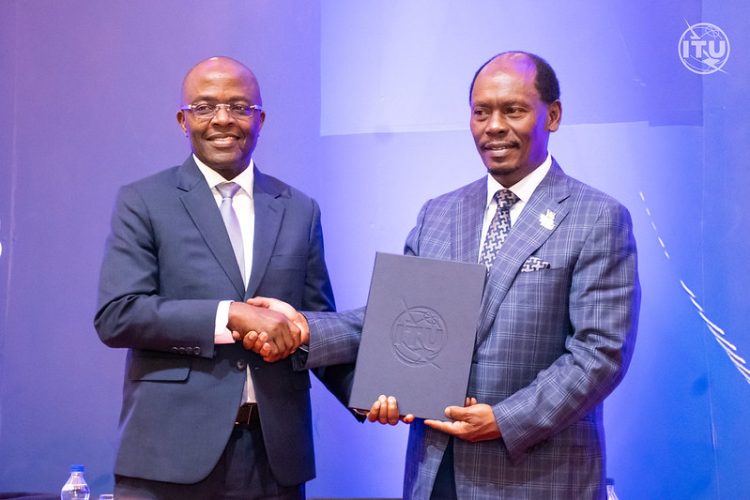
Cosmas Zavazava, Director of the Telecommunication Development Bureau at ITU (left), and William Kabogo, Cabinet Secretary for the Ministry of Information, Communications, and the Digital Economy in Kenya (right). Photo courtesy ©ITU/S. Kinyanjui
The participants insisted on the need for Africa-pioneered solutions, with regional cooperation in mind for the success of the digital environment in Africa. It was noted that such actions can drive development goals that align with Africa’s priorities. John Omo, the Secretary General ITU, revealed that:
‘When digital access remains unreliable and unavailable for nearly 60% of our people, economic participation, social inclusion, and public service delivery are all undermined, and these are development barriers that require coordinated and actionable responses.’
John Omo, the Secretary General ITU. Photo courtesy of ITU/S. Kinyanjui
This convening also assessed the progress made toward the Kigali Action Plan, which was adopted in 2022. This plan focused on expanding broadband, supporting innovations in the region, and promoting safer digital environments.
The Regional Preparatory Meeting for WTDC-25 for Africa (RPM-AFR) took place from 8 to 9 April after the RDF on the 7th in Nairobi. Mr David Mugonyi, EBS, Director General of CA Kenya welcomed the delegation on 8th following the inception of RPM-AFR.
Mr David highlighted the significance of RPM-AFR in anticipation of WTDC-25 stating that
“Digital transformation is a socio-economic imperative for every African country. In capitals across Africa, the hunger for innovation is palpable, our relentless youth are united in demand of more connectivity, more skills, and more prosperity. Our entrepreneurs are attacking opportunities, governments are expanding service delivery and our communities wait expectantly for the fruits of this digital transformation.”
Dr Emma Otieno, Head of Central & Eastern Region at CA, attended the event and shared insightful thoughts from the discussions that took place during RPM-AFR. She revealed that:
“One of the things that have interested me, and we can take pride in because they are aligned to the objectives of iPRIS, is the issues related to capacity building. One commendable thing is that capacity building has been touted as a key pillar in every initiative discussed here. We've discussed emerging technologies, AI, quantum computing, and big data. Capacity building is a key pillar if Africa has to join the race for emerging technologies, especially artificial intelligence.”
Dr Emma is an iPRIS alumni and participated in the first ever iPRIS cohort that had their initial round in Stockholm in November 2023 and their Africa round in Namibia in March 2024. Read more about the first-ever iPRIS cohort’s activities while in Namibia here
07 April 2025
Anthony Omoshie, IT Specialist & Facilities Management Support Consultant at West Africa Telecommunications Regulators Assembly (WATRA | ARTAO), shared some insights on regional telecommunications regulation following the IPRIS Africa round in Namibia. He highlighted the significance of fostering a better telecommunications ecosystem and regional cooperation among member states.
This interview has been edited for clarity.
iPRIS: Please introduce yourself and what you do at WATRA.
Anthony Omoshie: I am Anthony Omoshie, the IT specialist and Facilities Management Consultant at WATRA Secretariat in Abuja, Nigeria. I handle the technical and utilities issues related to the Secretariat in Abuja. That is my core function, and I assist in every other department to the best of my abilities.
iPRIS: From WATRA’s standpoint, what were the most important results or discussions from the IPRIS Africa round in Namibia? Do these align with WATRA's objectives for regional regulatory cooperation?
Anthony Omoshie: There were a few key takeaways from Namibia, 2024C round, where WATRA members NCA Ghana, and LTA Liberia were present. It is clear from the discussions held that there is a drive towards ensuring a better ecosystem for telecommunications within their respective jurisdictions. The planned activities align with their change initiatives based on the activities and discussions carried out. There will be benefits for the citizens of West Africa as continuous efforts from each member state will affect the sub-region's economy.
As a regional organisation, we have a lot of emphasis on the importance of the iPRIS program. And we're immensely grateful to SPIDER for their support and the EU for funding the project through SIDA.
It was also interesting to see the issues arising from the various markets and how they can be politically addressed, based on past experiences with other members who participated in the same and previous programs before IPRIS was launched. I'm also happy to support and contribute in any way I can to ensure that each of the NRAS achieves what they are set out to achieve regarding their change initiatives.
iPRIS: Regulatory fragmentation is among the primary issues facing regulation in Sub-Saharan Africa. What activities does WATRA undertake to combat these issues and ensure regulatory harmonisation among its members?
Anthony Omoshie: Regulatory fragmentation is challenging, especially when diverse issues contribute to the same problem. We have different markets, structures, and growth levels among WATRA members. There’s also diversity in language.
One of WATRA's objectives as a regional entity is to tackle this issue innovatively. All the countries have their own priorities and national interests. The IPRIS program was designed to address the challenges we faced in getting members to participate, since the language barrier proved to be a problem. The initial SPIDER program, ITP, was all English, but IPRIS has three language categories: English, French, and Portuguese.
The best way for WATRA to tackle the problem of regulatory fragmentation was to foster collaboration amongst our members. So the innovative approach we came up with, in addition to the other previous steps, was the recent establishment of our working groups following our strategic plan 2022-2025, which was ratified in December of 2022. Working groups were established to tackle the critical issues and challenges within the sector.
The best way to ensure that regulatory frameworks are harmonised is by providing a platform where all members can actively share their concerns and views on various sector subjects and discuss how best to solve such problems.
In 2024, after our 21st AGM in Freetown, One of the challenges that came up was the issue of non-resistance, orbit services at Non-Geostationary Orbit (NGSO), which came up as a general issue that cut across the board for all members, how to approach the providers of such services, and how to ensure that it doesn't hurt their economy. It stemmed from a general concern, and because of that, an ad hoc working group was established. It was mandated that solutions be provided for all members to leverage an approach to this issue within the sub-region.
The group delivered our best WATRA NGSO framework on our website. It has guided all members to engage with NGSO service providers and operators and how they can look to the best of their abilities. It has also allowed them to localise within their jurisdictions, allowing them to engage such players in the industry effectively. The best way to address this issue of regulatory fragmentation is to promote collaboration, and we are promoting that collaboration through our working groups.
iPRIS: Are there any cross-border challenges WATRA faces in pursuing spectrum allocation and coordinating inter-country cooperation?
Anthony Omoshie: At a regional level, there haven't been such challenges regarding spectrum allocation. However, some of these challenges may exist at the national level and have already been addressed.
When it comes to spectrum allocation and spectrum planning, it is advised, especially within the ITU framework, that frequency sharing and cross-border coordination between neighbouring countries should be coordinated to ensure that each respective jurisdiction is respected.
We can reference NCA Ghana's current change initiative, consumer education awareness on preventing automatic problems. One of their findings revealed an issue with the profile zone that operators in neighbouring countries are not respecting.
They now have a team with the NCA responsible for this, and the same applies to their neighbours, Côte d'Ivoire, Togo, and Burkina Faso. However, that has not been discussed at the regional level. If that doesn't work out, the next line of action will be to bring it up on a platform like the WATRA AGM, which is coming up in the next few days. Other than that, cross-border engagement between people is good.
iPRIS: Telecom regulation faces shifts due to AI and new technologies. How does Watra support member countries to ensure they are ready for such technological shifts?
Anthony Omoshie: We know the impact that AI and other emerging technologies bring to the sector, and how all regulators in West Africa are affected.
I will borrow Hans's words from our session on strategic foresight in Namibia. You need to have a good level of strategic foresight to be ahead of the market and its advancements. One of WATRA's mandates is to provide capacity-building workshops and programs for our members to stay up-to-date with market trends and the sector as a whole.
From our 21st AGM in Freetown last year, the first day featured a workshop on AI and big data analytics, as well as how regulatory tools need to be updated to meet the standards that AI and other investment technologies bring. WATRA’s role is to provide a capacity-building program for our members in key areas of concern within the sector. There is no doubt that AI is a trending area of concern, and the plan is to continue organising such capacity-building workshops for our members to ensure they stay up to date.
To reiterate, we provide a platform where members can come together at the regional level and build their capacity on subjects and trending matters related to the telecommunications sector in West Africa.
iPRIS is coordinated and implemented by SPIDER in strategic and technical partnership with the Swedish Post and Telecom Authority (PTS) and the Luxembourg Regulatory Institute (ILR).
iPRIS is funded by the European Union, Sweden, and Luxembourg as part of the Team Europe Initiative “D4D for Digital Economy and Society in Sub-Saharan Africa” (Code: 001).
In a significant step towards regional integration, Liberia, Sierra Leone, and The Gambia have signed a Memorandum of Understanding (MoU) to strip off roaming charges between these countries. The MoU allows citizens to use mobile services at local rates while travelling to encourage economic collaboration and enhance connectivity.
The MoU is in line with the broader ECOWAS intent to lower high roaming costs across West Africa. Starting from 2 May 2025, Liberian citizens travelling to Sierra Leone will be able to receive calls on their phones without charges- on the local service for use, similar to what happens inside the country. The same contract will apply to The Gambia on July 1, 2025. Abdullah Kamara, Acting Chairperson of Liberia Telecommunications Authority (LTA), hails it as a game-changer for regional connectivity and plans to include further similar arrangements to Ghana, Côte d'Ivoire, Togo, and Benin by the end of the year.
iPRIS is coordinated and implemented by SPIDER in strategic and technical partnership with the Swedish Post and Telecom Authority (PTS) and the Luxembourg Regulatory Institute (ILR).
iPRIS is funded by the European Union, Sweden, and Luxembourg as part of the Team Europe Initiative “D4D for Digital Economy and Society in Sub-Saharan Africa” (Code: 001).
On 27th and 28th March, CRASA was hosted by LCA in Maseru, Lesotho, to hold its 14th AGM. The AGM is the primary decision-making body of CRASA. The AGM convenes once a year to gather and approve reports from the specialised committees, the association's annual budget, the CRASA annual report, audited accounts, and annual operational plans. It also serves as a stage where the members can convene to discuss and share experiences in the sector through centered reports, presentations, and discussions on fields and trends that are relevant to them. Consequently, the AGM fosters collaboration among telecom regulators and stakeholders in the region.
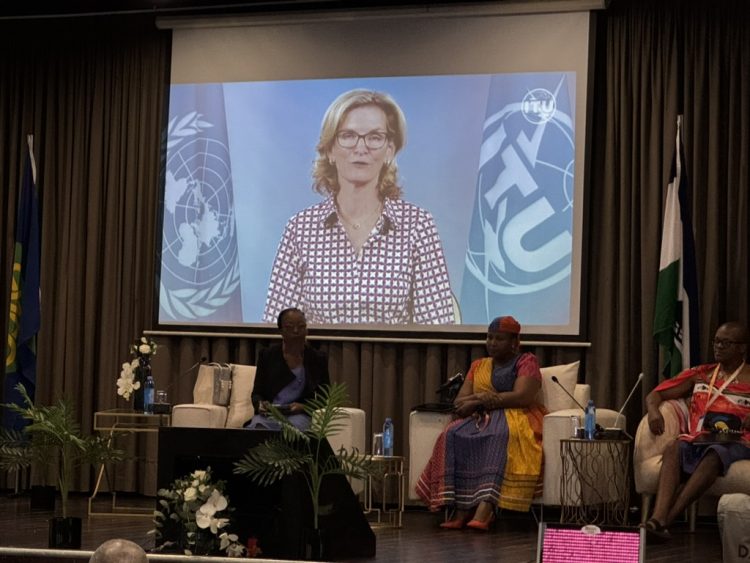
ITU Secretary General Doreen Bogdan-Martin making an opening speech
The 14th CRASA AGM brought together industry peers to discuss emerging issues in the fast-changing digital tool regulatory sector in the southern Sub-Saharan Africa region. Regulation is a key issue when digital tools are in play, and CRASA, through such meetings, underscores the value of evaluating the sector to adapt to the evolving industry. CRASA remains a primary player in determining the shape of ICT governance in the southern region of Sub-Sahara Africa.
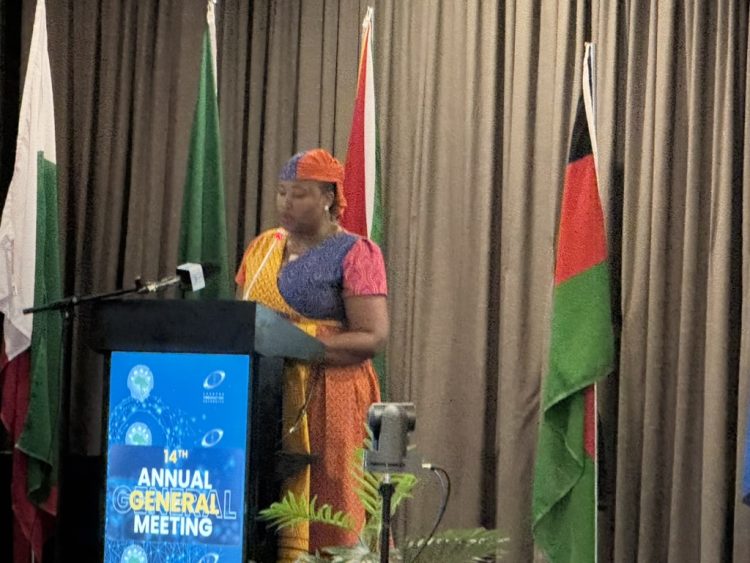
Lesotho’s Minister for ICT and Innovation Nthati Moorsoi welcoming the participants to the AGM
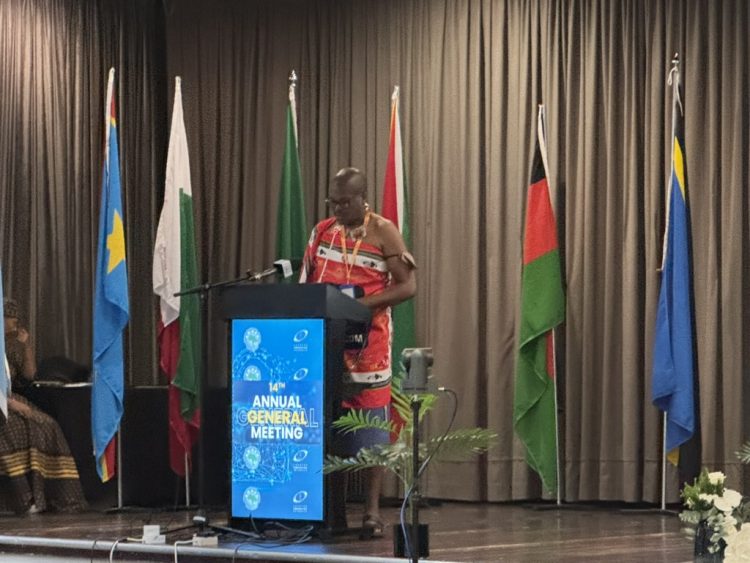
The CEO ESCCOM Eswatini Mvilawemphi Dlamini, who is also the chairperson of CRASA making his remarks at the AGM
We are excited to welcome the fifth iPRIS cohort, 2025B! From May 4 to 21, regulatory experts from Eswatini, Nigeria, Sierra Leone, Tanzania, Uganda and Zambia will dive into an intensive 2.5-week training, connecting, learning, and growing together for a stronger telecom future in Africa.
The 2025B group will be the fourth English-speaking cohort to participate in the iPRIS project after the third English-speaking group (2024C) participated in their first peer-to-peer learning session in Sweden in November 2024. The 2024C cohort also recently participated in an additional knowledge-sharing experience in Namibia in March 2025. An additional iPRIS cohort, such as the first French-speaking 2024B group, also participated in a similar exercise, meeting in Senegal in February. The first iPRIS cohort 2023A, comprising regulators from Nigeria, Kenya, Namibia, Eswatini, South Sudan, Zambia, and Sierra Leone, completed their iPRIS cycle in December 2024.
The 2025B cohort will meet for one week after four months in one of the African countries represented in their group for the Africa phase. This week-long meeting will provide a platform for participants to review the progress of their change initiatives, share results, and engage in discussions to enhance their change initiatives further. One year after the round begins (May 2026), the efficacy and progress of the change initiatives implemented by the participating NRAs will be evaluated in partnership with the participating African and European telecom experts.
iPRIS is coordinated and implemented by SPIDER in strategic and technical partnership with the Swedish Post and Telecom Authority (PTS) and the Luxembourg Regulatory Institute (ILR).
iPRIS is funded by the European Union, Sweden, and Luxembourg as part of the Team Europe Initiative “D4D for Digital Economy and Society in Sub-Saharan Africa” (Code: 001).
Borgarfjordsgatan 12, Kista,SWEDEN
Postal Address: Stockholm University, Department of Computer and Systems Sciences/DSV, SPIDER, P.O Box 1073, SE-164 25 Kista, Sweden
Copyright © 2025 iPRIS. All rights reserved.